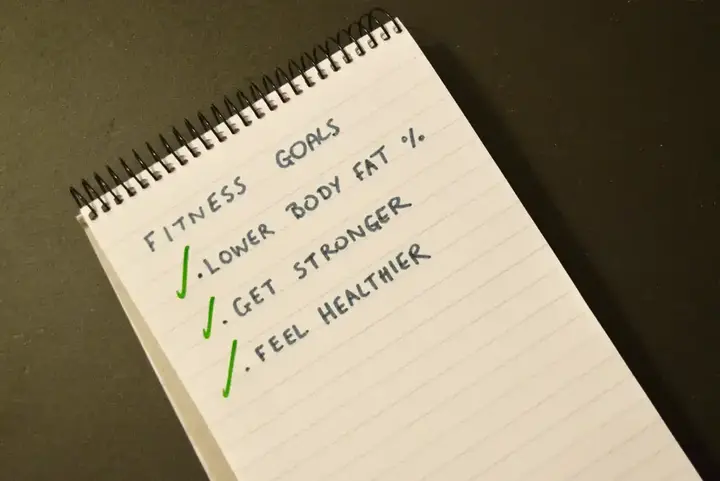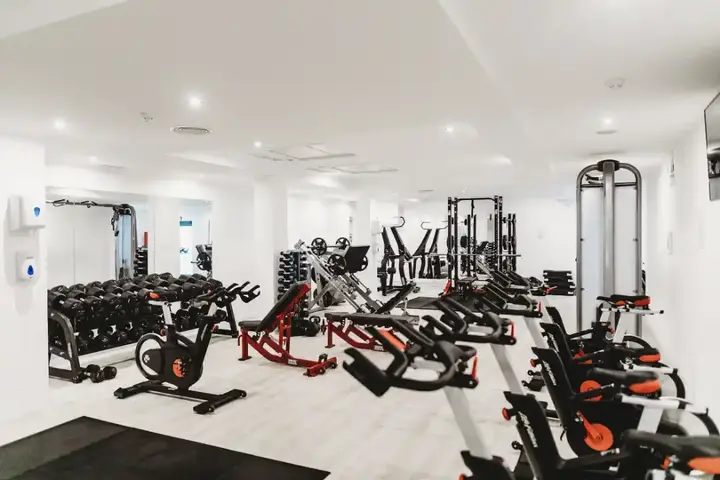Gym Guide: Learning from Mistakes to Mastery
The gym is more than just a collection of weights and machines; it is a temple of transformation, and it is where everyone embarks on a unique journey towards self-improvement. However, this path is often paved with trial and error. Mistakes made in the gym are not just inevitable; they are invaluable educational opportunities that shape our approach to fitness. From the rattling of the gravity hitting the ground to the silent struggle during the last push-up, every mistake holds a lesson. This article aims to draw wisdom from these lessons and turn them into actionable tips, helping you navigate the gym scene with confidence and avoid common pitfalls.
Show key points
- The gym represents a personal journey of self-improvement, filled with both physical challenges and valuable learning experiences.
- Striking the right balance between cardio and weight training is crucial for achieving all-around fitness and avoiding lopsided results.
- Consistency in workouts, rather than sporadic efforts, is the true driver of long-term progress and transformation.
- ADVERTISEMENT
- Prioritizing proper form over lifting heavy weights prevents injuries and ensures effective muscle engagement.
- Listening to your body helps differentiate beneficial soreness from harmful pain, reducing the risk of overtraining.
- Nutrition and hydration play a vital role in fueling workouts, enhancing recovery, and supporting overall performance.
- Including variety in your fitness routine can combat boredom, promote balanced muscle development, and reduce injury risk.
Introduction

The gym is more than just a collection of weights and machines; it is a temple of transformation, and it is where everyone embarks on a unique journey towards self-improvement. However, this path is often paved with trial and error. Mistakes made in the gym are not just inevitable; they are invaluable educational opportunities that shape our approach to fitness. From the rattling of the gravity hitting the ground to the silent struggle during the last push-up, every mistake holds a lesson. This article aims to draw wisdom from these lessons and turn them into actionable tips, helping you navigate the gym scene with confidence and avoid common pitfalls.
Recommend
1. Understand cardio balance and weights

The synergy between cardio and weight training is pivotal to achieving optimal fitness. Cardiovascular exercise improves heart health and endurance, while weight training builds muscle and strength. The mistake often lies in overfocusing on one at the expense of the other. A balanced routine that includes both elements can improve body composition and performance. For example, alternating cardio and weights or combining both in a circular training session can bring significant benefits.
2. The importance of consistency

Consistency is the cornerstone of any successful fitness program. It is not the intensity of a single exercise but the cumulative effect of regular and disciplined practice that leads to results. The key is to establish a sustainable schedule that aligns with your lifestyle and goals. Whether it's three days a week or a daily exercise, what matters is sticking to the plan. Remember that sporadic efforts lead to sporadic results.
3. The right model on the ego

The correct form ensures that you target the intended muscles and reduce the risk of injury. It's tempting to lift heavier weights to keep up with peers or personal expectations, but this can lead to improper shape and potential harm. Focus on mastering the technique with light weights first. As your efficiency grows, so does weight – safely and effectively.
4. Warm-up and cool-off rituals

Warm-ups gradually increase your heart rate and circulation, preparing muscles and joints for the next workout. On the other hand, cooling processes help gradually return your body to a resting state and can help prevent stiffness after exercise. Incorporating activities such as jogging, dynamic stretching, or yoga can enhance your warm-up and calm-down routine, leading to better performance and recovery.
5. Listen to your body

Pain is the body's way of signaling that something is wrong. While muscle pain is a normal part of exercise, acute or persistent pain is not. It is necessary to distinguish between the two and rest or seek medical care if necessary. In addition, paying attention to fatigue levels can prevent overtraining, which can be just as harmful as lack of training.
6. Nourish and hydrate

Nutrition nourishes your workouts and helps in recovery. A balanced diet rich in protein, carbohydrates, fats, vitamins and minerals supports muscle growth and energy levels. Hydration is equally important, because water is essential for almost every bodily function. Drinking water before, during and after exercise maintains hydration levels and supports performance.
7. Progressive overloading

Progressive overload is the gradual increase in stress on the body during exercise training. It's about challenging your muscles to adapt and grow stronger over time. This can be achieved by gaining weight, changing sets and repetitions, adjusting rest periods, or diversifying exercises. The goal is to bypass your comfort zone while maintaining proper shape and safety.
8. The role of recovery

Recovery is when the body repairs and strengthens itself. Adequate sleep, rest days, and active recovery techniques such as massage or light exercise can enhance this process. Ignoring recovery can lead to stable performance or, worse, injury. It is essential to listen to your body and give it the time it needs to recover.
9. Embrace diversity in your routine

A varied exercise regimen can prevent mental and physical exhaustion. It's easy to fall into routine, but your body adapts, and the benefits may stabilize. Incorporating different types of exercises, such as HIIT, Pilates, or new strength training movements, can challenge your body in new ways and keep your mind engaged. Versatility also reduces the risk of injuries caused by overuse and ensures more balanced growth of muscle groups.
10. Set realistic goals and track progress

One of the biggest mistakes is setting goals that are too ambitious or not clearly defined. This can lead to frustration and lack of motivation. Set SMART goals (specific, measurable, achievable, relevant, time-bound) to stay on track. In addition, keeping a workout log or using a fitness app can help you monitor your progress, understand your strengths and weaknesses, and adjust your training plan accordingly. Celebrate small victories along the way; they add to great achievements over time.
Conclusion

In conclusion, the gym is a microcosm of life's wider journey, where discipline meets ambition, and resilience is built from actor to actor. The tip shared here is a fabric woven from the threads of countless gym bugs and the ideas it offers. By absorbing these lessons, you can turn every mistake into an opportunity for growth. The path to fitness is a marathon, not a sprint, and it's surrounded by signs we learn. Embrace every workout knowing that every challenge you face is a step towards becoming stronger, healthier and more capable. Remember that the ultimate goal is not just to lift weights, but to raise yourself to new heights of health.








